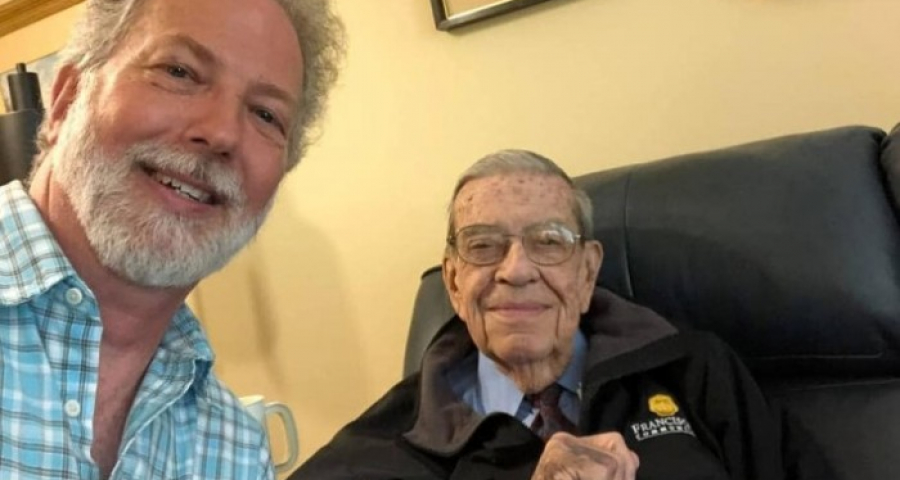The Indianapolis entrepreneur John Welch, a true EoC "pioneer", passed away last February: John Mundell tells us about some of the experiences he shared with him, giving us a small "taste" of the important lessons learned from his lifestyle.
By John Mundell
It’s been several months now since a great friend of mine, John Welch, owner/CEO of Consort International, maker of Sofia Violins, and my business mentor in the Economy of Communion, left our life for the next eternal one. John had 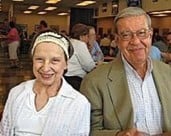 an exceptional business career that sprang from his education and dedication to the field of music. An accomplished pianist and jazz trombonist, John would go on to have a career involved in all aspects of music – from musician to music teacher to conductor to publisher to manager of large symphonies to high-end, stringed-instrument manufacturing. Consort was recognized as one of the first joint-ventures setup behind the iron-curtain after the fall of communism in 1989. He was named International Business Person of the Year in the State of Indiana for building significant international relationships and recognized by the State Department of the United States for supporting collaborative economic activities during that historic time period.
an exceptional business career that sprang from his education and dedication to the field of music. An accomplished pianist and jazz trombonist, John would go on to have a career involved in all aspects of music – from musician to music teacher to conductor to publisher to manager of large symphonies to high-end, stringed-instrument manufacturing. Consort was recognized as one of the first joint-ventures setup behind the iron-curtain after the fall of communism in 1989. He was named International Business Person of the Year in the State of Indiana for building significant international relationships and recognized by the State Department of the United States for supporting collaborative economic activities during that historic time period.
As amazing as his business career was, John’s personal life was even more amazing. John and his wife Mary brought the Focolare Movement to our State of Indiana back in the 1970s, and communicated its impact on their lives with the sharing of everyday experiences of living the Gospel at meetings my wife Julie and I attended when we were first married. Their sharing of the Focolare’s unique spirituality of communion with everyone they met created deep friendships not only within the Catholic Church, but also with those in other Christian churches, with believers in the other great world religions, and with those who had no particular religious background. Their impact on others’ lives was truly one with a global scale.
It was natural, then, that when Julie and I started our company Mundell & Associates 27 years ago to become part of something called the Economy of Communion, John was one of the first to offer ongoing support and advice. The following paragraphs provide a very small ‘glimpse’ of some of the lessons learned and experiences we shared together during the history of our companies.
The Company Startup - Building a Culture of Communion
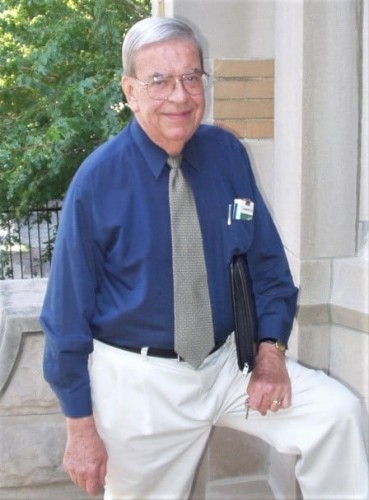 “You need to get out of your house and have an office as soon as you can,” John advised. “Why don’t you come down and check out my building?” Within six months after our opening day, and with his encouragement, we did move our office into the same building in downtown Indianapolis, and stayed there the next 12 years. The value of this move was probably the biggest gift we could have received to understand how a business lifestyle of ‘communion’ can impact the quality of all relationships. This move allowed John and I to have frequent contact with each other, sharing lunches and coffee breaks several times a week.
“You need to get out of your house and have an office as soon as you can,” John advised. “Why don’t you come down and check out my building?” Within six months after our opening day, and with his encouragement, we did move our office into the same building in downtown Indianapolis, and stayed there the next 12 years. The value of this move was probably the biggest gift we could have received to understand how a business lifestyle of ‘communion’ can impact the quality of all relationships. This move allowed John and I to have frequent contact with each other, sharing lunches and coffee breaks several times a week.
We often held joint meetings with our landlord to discuss building issues not only for ourselves, but for the other tenants as well. We would even meet jointly sometimes with our banker and lawyer whom we also shared. Occasionally, we would host informal after-work parties to allow all the tenants to get to know each other.
This close proximity to each other also meant the chance to share our deeper thoughts and feelings about our successes and failures – and we had many of both! Often, when I was ‘up’ and business was good, John could be ‘down’ and was faced with trouble. And, when I was down, and ready to ‘throw in the towel’, he was up, sharing the good news of a recent success. When we had company crises, which we each have had at different times, we were there for each other. We were not afraid to tell it like it is – even when we really blew it by not living the ideals of the Economy of Communion business lifestyle we wanted to follow. And then, there were times, of course, when we just talked about other things besides work – our families, our faith, the news - to take our minds off of business!
I can’t tell you how important it was to have this frequent sharing with John of what was stirring inside of me. This was and is one of our ‘secret weapons’ of sanity and what we have to offer other business people - to face business successes and failures, employee resignations and firings, financial disasters like clients not paying on time or at all – with someone else who chooses to ‘love your company as his/her own’. What a gift this is! We discovered together that communion among businesses is not some nebulous idealic concept, but a true, lived, concrete and essential reality that grows deeper and deeper as we take the steps towards each other in the daily happenings of our businesses.
Sharing Expertise, Time and Yourself
Advice from John on building authentic, lasting relationships remains with me to this day. John definitely had ‘the knack’ for this – and watching him over these years reinforced some of those traits that support it. One day, I remember asking him: “John, what helps you live this particular art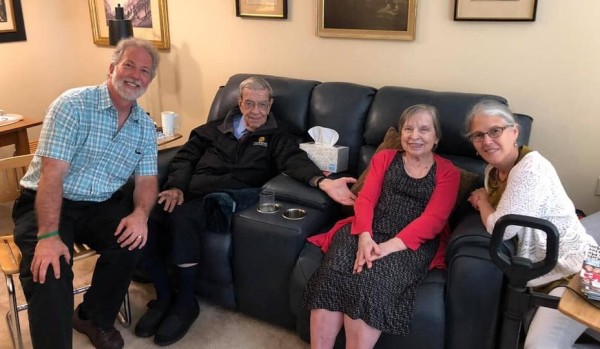 particolare of making yourself one with the others so well?” He then related something he learned in his first job of selling encyclopedias door-to-door.
particolare of making yourself one with the others so well?” He then related something he learned in his first job of selling encyclopedias door-to-door.
“You could tell,” he said, “in carefully listening and observing the person at the door, within the first 30 seconds, whether you would be successful or not.” It was that ‘tuning in’ to the person as if they were the only thing on earth that mattered in that moment that really brought this ability about. John would occasionally look at me, and repeat a saying that he had picked up in the door-to-door adventures of his traveling salesman days: “If you want to sell to John Jones, what John Jones buys, you must see John Jones through John Jones’ eyes!.” To me, it was the closest embodiment of the way that John lived out the Focolare spirituality Chiara Lubich had taught him: “Love each person that God puts next to you in each present moment of your life.”
First to Help Others
An experience John often shared was a lesson in responding to the needs of others ‘always, immediately and with joy’. One day, John was preoccupied in the morning with making sure he called several music store dealers that owed him money for violins he had shipped. One of his employees, a recent refugee from Bosnia John had hired right after he arrived in the United States, came into his office showing John a picture of a house he wanted to buy. However, he didn’t understand that he needed a mortgage commitment from a lender so that he could make his offer. John immediately stopped everything that he was doing (“the unexpected will of God in the present moment”) and went with his employee to his bank.
After spending all day’s calling different places with the banker to get information about the employee’s credit, at the end of the day, the banker told John: “Tell them that they are approved for a mortgage and they can make an offer on the house!” The employee and his wife still live in that house today. However, the real surprise came the very next day, when John went to the post office to get his mail, and when he opened the mailbox, he pulled out envelopes from each of the five dealers he was going to call, each with payment checks for the violins.
I remember that day vividly, because at lunch, John shared the experience with me. “Providence strikes again!” we both shouted together, and that saying became our oft-repeated exclamation anytime something totally unexpected happened for the good of our businesses that we knew was beyond our own abilities. One day, after I shared at lunch a particularly amazing experience of ‘good business luck’, John leaned in, looked me straight in the eye, and said seriously in an almost whispered tone: “We don’t just live the present moment, we live the present miracle!” That positive set of ‘glasses’ through which he saw life was truly contagious – and something I wanted to always be in touch with as well.
Supporting with Action, Not Just Words
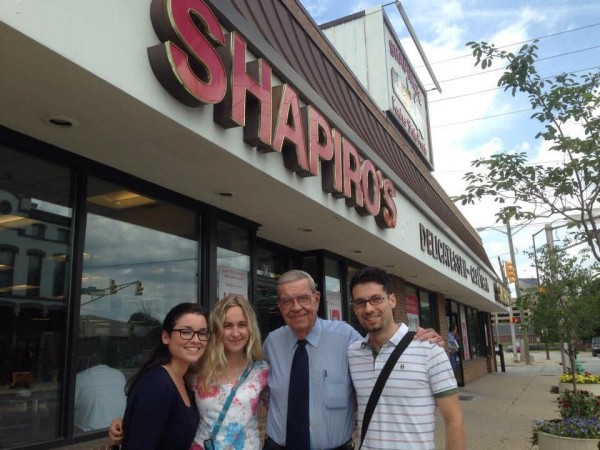 Wherever John would go, it seemed that he immediately became the best of friends with everyone he encountered. Many of us know how much John loved cars, especially his black Mercedes-Benz that he had had for many years. One time, something went wrong mechanically with the car, and he took it into the dealership to have it checked. Back in the shop with the car and the mechanics, John immediately struck up conversations with them, and how much he loved his car and was appreciative of the work they were going to do. The next day, when he received his car from them, he was so impressed with it that he wrote a very long letter to the CEO of Mercedes-Benz. The next time he came into the dealership, the entire mechanics crew turned toward him and gave John a standing ovation, because they had been personally recognized by the company as a top performing crew. As you can imagine, John’s small act of kindness resulted in strong long-term relationships and great service. This kind of thing was typical of John.
Wherever John would go, it seemed that he immediately became the best of friends with everyone he encountered. Many of us know how much John loved cars, especially his black Mercedes-Benz that he had had for many years. One time, something went wrong mechanically with the car, and he took it into the dealership to have it checked. Back in the shop with the car and the mechanics, John immediately struck up conversations with them, and how much he loved his car and was appreciative of the work they were going to do. The next day, when he received his car from them, he was so impressed with it that he wrote a very long letter to the CEO of Mercedes-Benz. The next time he came into the dealership, the entire mechanics crew turned toward him and gave John a standing ovation, because they had been personally recognized by the company as a top performing crew. As you can imagine, John’s small act of kindness resulted in strong long-term relationships and great service. This kind of thing was typical of John.
Valuing Every Person
One experience comes to mind when I think of John’s capacity to see the good and the value of every person he met. Once a month, our local FedEx representative, Mike, would visit our building where John and I had our companies, and John would come down to my office and say: “Let’s go to lunch with Mike!” At first, I was a little reluctant, thinking ‘Why would I want to spend time with the FedEx rep, when I have other more important things to do?” However, over time, understanding the importance of everyone who encountered the company grew within me. During our lunches with Mike, John would always make sure he understood what Mike and FedEx needed from him to make sure his packages made it out on time and in good condition. At the same time, he would also ask Mike about himself, his family and his dreams. It turned out, Mike had been wanting for some time to go back to college and finish his degree, so that he could teach mathematics; however, the time never seemed right. Over the course of several months, John and I would encourage him to make a plan, follow his passion, and make it happen. One day, a new FedEx representative came to the building. “Where’s Mike?” we asked. “Oh, he decided to go back to school.” We later heard that he had landed a job teaching math at a small university. Over the years, simple meetings with many different people often resulted in small ‘miracles’ like this.
Building Relationships
Building deep and caring relationships with everyone within his company and with everyone who in any way touched his company is the living legacy John left for all of us to follow. Changing the world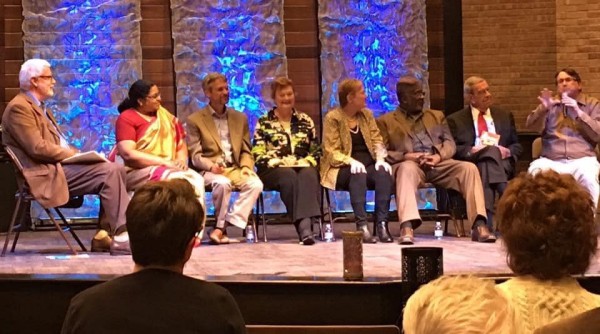 one ‘short encounter’ and one ‘sacred moment’ at a time can seem like a small thing, but John’s business life is a testament to the impact on those around him that this style of living can have. It reminds me of one final experience that I witnessed. John once threw a company ‘going away’ party so well for an employee who had resigned to go to a competitor that the employee came back in the next Monday to ask for his job back: “Can I come back? My wife and I decided over the weekend that I would be crazy to leave this company!”
one ‘short encounter’ and one ‘sacred moment’ at a time can seem like a small thing, but John’s business life is a testament to the impact on those around him that this style of living can have. It reminds me of one final experience that I witnessed. John once threw a company ‘going away’ party so well for an employee who had resigned to go to a competitor that the employee came back in the next Monday to ask for his job back: “Can I come back? My wife and I decided over the weekend that I would be crazy to leave this company!”
I think we would all be ‘crazy’ not to want to be a part of a company that John Welch built and modeled for all of us. It is, at its core, the real hope for a more united and just world where everyone flourishes.

